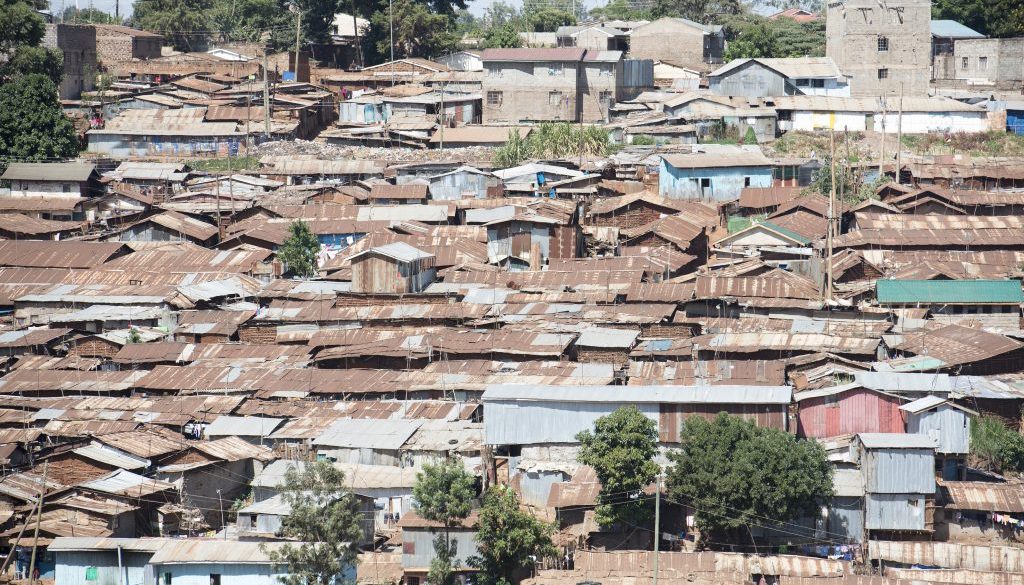Addressing the reality of climate change in Mathare
Janet Wairimu speaks about the realities of climate change in the informal settlement of Mathare in Nairobi, and how we might mitigate the biggest effects on those living in slums.
Everybody deserves a healthy, safe environment and a sustainable future. The climate crisis is affecting everyone, but the impact is particularly pronounced forthose living in the slums of Mathare. Mathare, located in the Eastern part of Nairobi, is one of the largest slums in the world. More than 60% of Nairobi’s population live in informal settlements, with many living in extreme poverty. In heavy rainfall the Nairobi River is prone to flooding. Limited infrastructure means it is difficult to provide relief in the case of disasters. Informal settlements are worse hit, not just by floods, but also by drought and other climate related disasters including diseases outbreaks.
What are the effects of climate change?
Climate change is a major cause of extremes which can often be seen in water systems, characterised by floods and drought. Climate change threatens to reverse the gains made in social and economic infrastructure. Residents of Mathare live in unsafe, overcrowded and often unsanitary housing, with a lack of access to basic services such as sanitation, water and electricity. Climate change increases residents’ vulnerability, with acid rain corroding the already poor structures and contaminating the available water. Among the increased health issues are water-borne diseases such as cholera and severe diarrhoea, as well as air- borne diseases and vector-borne diseases including malaria. Other impacts of climate change include sewer overflow, poor solid waste management, drowning, impassable roads, landslides, clogged drainage, electrocution, and broader insecurity.
Who are the most affected?
The most affected and most vulnerable groups in Mathare are women and children. They are affected by the many impacts of climate change – floods, global warming and drought. They are at risk of house fires which destroy their homes leaving them homeless, cold and unsafe and at a higher risk of gender-based violence. The stench in Mathare indicates water pollution which deeply affects the residents, many of whom have suffered from diseases such as cholera, typhoid and diarrhoea. The river is contaminated with human waste, industrial run-off, and garbage while the fumes from burning heaps of rubbish cause serious health hazards.
How to mitigate the effects of climate change
Slum upgrading is an important way to mitigate the effects of climate change and fight health risk factors in Mathare. Upgrades to metal sheet houses would increase health as better housing can prevent heat shock and exposure to the cold, and more stable housing during rainy seasons could make them more robust in the case of floods, thereby reducing stress and insecurities.
Upgrading infrastructure including roads, drainage systems, sanitary facilities and dump sites will further make those living in informal settlements less vulnerable to extreme climate change related weather events.
Another way to mitigate climate change is raising communal voices on climate change challenges at the community level. Community capacity building may be done through educating and sensitising local groups to be knowledgeable ambassadors disseminating information on climate change and related health risks and mobilising local mitigation strategies. Training active youth or women groups, community health volunteers (CHV) or community health workers (CHW) who already have a role within the community could prove effective. In other low resource settings, CHVs/CHWs are utilised to help improve health outcomes in many different areas. Further research is needed as to how adapting a similar strategy to the field of climate change and related health impacts may be sustainable in informal settlements like Nairobi.
Slums and informal settlements are often left out of city-wide development plans and strategies. This is partly because policies and legal frameworks are not sensitive to and ineffective for addressing conditions in slums. The government should include slums in their projects, and build more health facilities to mitigate the health hazards.
The controversial National Youth Service Youth Empowerment programme to upgrade slums began in 2013. It was a good idea but failed as it was not well implemented, was riddled with corruption, and was unsustainable. Over 5000 youths were engaged in the project and the residents benefitted from ablution blocks for toilets and washrooms, tarmacked roads, environmental clean-up and creation of jobs and promotion of wealth in the slums. Ideally projects like these would be more sustainable.
Climate change is an existential threat to not only people from Mathare but globally and it demands our immediate attention and concerted efforts. By embracing sustainable practises, transitioning to clean energy and advocating for policies that prioritise environmental conservation, we can mitigate the impacts of climate change and create a more sustainable future for ourselves and generations to come. Let us stand united in the face of this global challenge, for the time to act is now.
